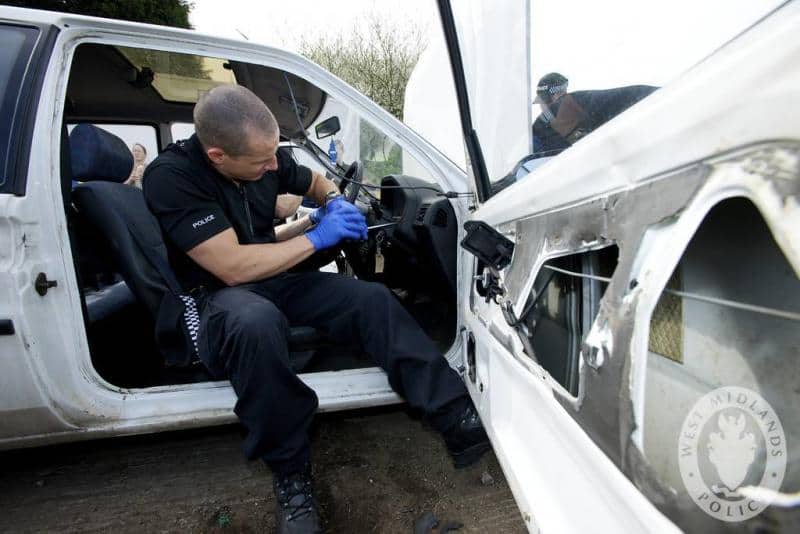
“1-2-3!”
You hear this shouted in fight gyms and boxing matches around the world. It’s a quick, concise statement of one of the deadliest 3-punch combinations in the sport. It’s a left jab, followed by a right cross and ending with a left hook (consider opposite hands if you’re southpaw). The jab opens the opponent’s defense and establishes punching range. The right cross – your power hand – does damage. The coup de gras left hook should result in more major pain, a knockdown or knockout; especially if ANY of the punches land flush on the chin or temple. At any rate, somebody is getting hurt. Or put to sleep.
For the month of August, the WA Supremes issued a 1-2-3 combination with State v. Tibbles, State v. Afana and now State v. Adams; all three decisions upholding the U.S. Supreme Court’s Arizona v. Gant which held that police may search a vehicle incident to arrest “only if the arrestee is within reaching distance of the passenger compartment at the time of the search or it is reasonable to believe the vehicle contains evidence of the offense of arrest.”
Lat’s talk about State v. Adams. On May 24, 2006, Deputy Volpe observed Coryell Adams sitting in a parked car outside a casino. Volpe checked the license plate number and learned that Adams had an outstanding arrest warrant for driving with a revoked license.
Volpe followed Adams as he drove to a Taco Bell parking lot. Volpe drove onto the same lot, activated her emergency lights, and parked about eight feet behind Adams’ car. As she stepped out of her patrol car, Adams stepped out from his car, stood near the driver’s side door and began yelling at Volpe, challenging the stop as racial profiling. After Volpe repeatedly ordered Adams back into his car, Adams “took 4-5 steps away from the car” and stepped into an adjacent parking stall where he continued to yell and wave his arms. At Volpe’s request, another deputy arrived and Adams calmed down. He was then placed under arrest.
After Adams failed to identify himself, Volpe frisked Adams and removed his keys and his wallet, which contained documents identifying him as the registered owner of the vehicle. The other deputy unlocked Adams’ car. After Volpe placed Adams in the back of her patrol car and read him his rights, she searched his vehicle and found a small black bag containing cocaine in the center console. He was charged with Possession of Cocaine. The case wound its way into the WA Supreme Court. During that time, the U.S. Supremes decided Arizona v. Gant, which was alluded to earlier.
Similar to State v. Afana, the State argued the officer acted in “good faith” when arresting Adams. However, the WA Supremes made short work of the case:
“Our recent decision in Afana resolves this case. In Afana we rejected the State’s argument that “good faith” reliance on pre-Gant case law constitutes an exception to the exclusionary rule under article I, section 7 of the Washington State Constitution. We explained the distinction between an officer’s “good faith” reliance on statutes that were subsequently declared unconstitutional to establish probable cause to arrest . . . [B]ecause the State concedes that Gant applies to the search in this case, and because we have declined to recognize a “good faith” exception based on pre-Gant case law in Afana, we reverse the conviction in this case.”
My opinion? Criminal defense attorneys have reason to raise a glass and toast the WA Supremes. These decisions are a fitting end to the summer of 2010. Take notice, prosecutors: Gant and its Washington progeny are here to stay. These cases won’t be skirted by “exigent circumstances.” They won’t be distinguished by “good faith.” Hurray to a new millennium in cases involving car searches and seizures. 🙂
Please contact my office if you, a friend or family member are charged with a crime. Hiring an effective and competent defense attorney is the first and best step toward justice.















